Table of Content
ToggleIntroduction
Gilberto Gil, a Brazilian musician, singer, and guitarist, has had an enduring impact on the world of music. Born on June 26, 1942, in Salvador, Bahia, Brazil, Gil is celebrated for his immense contributions to Brazilian popular music and his role in the innovative Tropicália movement. As a multi-instrumentalist, he has skillfully blended native Brazilian styles, such as samba and bossa nova, with modern rock and folk influences, resulting in a distinctive and influential sound that has resonated globally.
Throughout his career, which started in the early 1960s, Gilberto Gil has consistently pushed the boundaries of musical expression. He has collaborated with other notable Brazilian artists, including Caetano Veloso, Marcos Valle, and Gal Costa, collectively playing a significant role in shaping the Tropicália movement. This cultural revolution saw musicians challenging the traditional norms of Brazilian music by combining elements of foreign genres and incorporating social and political themes into their lyrics. Gil’s unique fusion of styles and his groundbreaking approach to songwriting have earned him international acclaim and solidified his legacy as a pivotal figure in the world of Brazilian music.
Early Life and Musical Beginnings
Gilberto Gil was born on June 26, 1942, in Salvador, the capital of Bahia state, Brazil. Growing up in Bahia, he was introduced to a variety of musical styles, inspired by local artists such as Luiz Gonzaga and Dorival Caymmi. Gil’s childhood in Bahia played a significant role in shaping his musical identity, as the region is known for its diverse cultural heritage and rich musical traditions.
At the age of seven, Gil began teaching himself to play the trumpet, using radio programs as his guide. His love for music continued to grow, and by the time he attended the Universidade Federal da Bahia(Federal University of Bahia), he was already proficient in various instruments, including the guitar, accordion, and drums. During his time at university, Gil studied business administration, but his passion for music never waned.
Gilberto Gil’s musical style can be characterized as a fusion of various genres, including bossa nova, samba, and rock. By combining elements from these different musical traditions, he created a unique sound that would become an integral part of the Brazilian music scene. In the early 1960s, bossa nova was transforming Brazilian music with its smooth melodies, refined harmonies, and poetic lyrics. Drawing inspiration from this cultural movement, Gil began to make a name for himself in the music industry.
Alongside his contemporaries like Caetano Veloso, Marcos Valle, and Gal Costa, Gilberto Gil became a pioneer of the Tropicália or Tropicalismo movement. This was an artistic movement that sought to redefine Brazil’s national identity through a fusion of traditional and modern elements, blending popular Brazilian styles like samba with rock and other international influences. This innovative approach to music would have a lasting impact on both Brazilian and global music scenes, solidifying Gil’s place as one of the most celebrated multi-instrumentalists and singer-songwriters of his time.
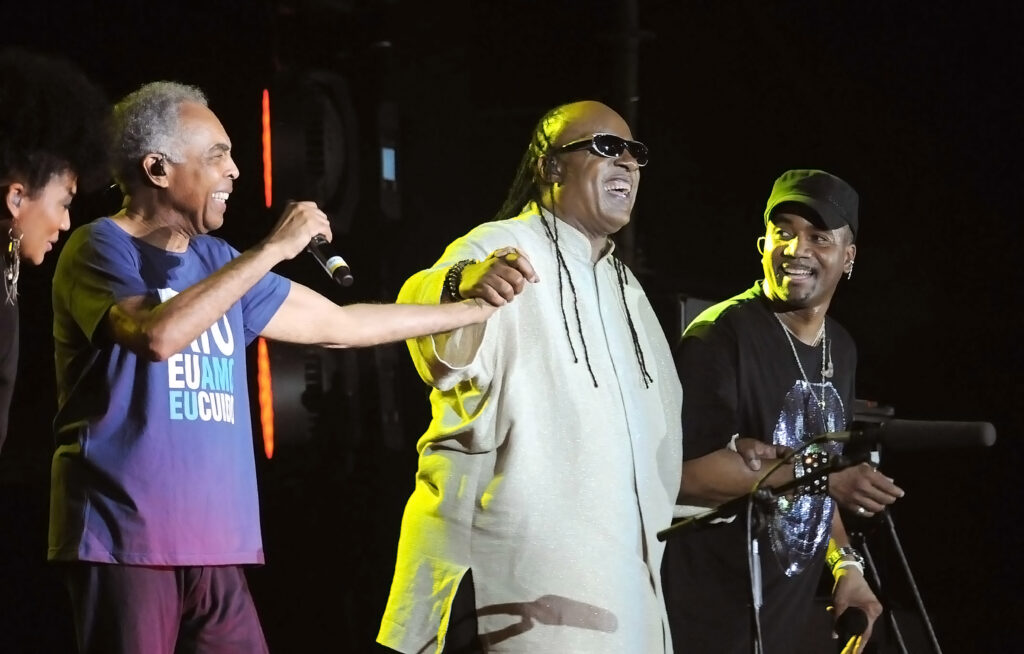
Rise to Fame and Tropicalismo Movement
Gilberto Gil, born Gilberto Passos Gil Moreira on June 26, 1942, in Salvador, Bahia, Brazil, is a multi-instrumentalist, singer, and songwriter recognized as one of the leading names in Brazilian music. His talent and influence led to his involvement in the creation of the musical movement known as Tropicália (or Tropicalismo).
The Tropicalismo movement emerged in the late 1960s and was an innovative fusion of rebellious rock ‘n’ roll from the United States with the native rhythms of Brazil’s traditional music. Its origin is often attributed to the performances of Guilberto Gil and fellow musician Caetano Veloso in 1967, with Gil’s rock version of his song “Domingo no Parque” (“Sunday in the Park”) and Veloso’s avant-garde “Alegria, Alegria” taking center stage. The movement gained momentum as a form of protest against the dictatorship in Brazil, embodying an anti-authoritarian message through art, literature, and music.
Other important figures of the Tropicalismo movement included Maria Bethânia, the sister of Caetano Veloso, who is a renowned singer and songwriter in her own right; Gal Costa, another accomplished singer known for her recording career that spans over five decades; and Tom Zé, a musician and composer involved in the development of the movement.
Despite experiencing censorship and subsequent exile, Gilberto Gil’s rise to fame in the Tropicalismo movement led to a prolific career not only as a musician but also as a politician. He served as Brazil’s Minister of Culture from 2003 to 2008, further solidifying his status as a significant cultural figure in his country and the Latin American music scene.
Political Activism and Arrest
Gilberto Gil emerged as a prominent figure in Brazil’s music scene during the oppressive era of the Brazilian military regime. His music, laden with political messages, made him a target for the dictatorship. Besides being a talented musician, Gil became an icon of political activism and resistance against the authoritarian government.
In 1968, Gil and other artists were at the forefront of the Tropicália movement, which sought to push the boundaries of Brazilian music by incorporating elements of different genres. The movement was viewed as subversive by the military regime, and ultimately led to the arrest and imprisonment of Gilberto Gil and fellow musician Caetano Veloso. The two were held without charges and were subjected to isolation, interrogations, and psychological pressure.
After spending several months in prison, the Brazilian military regime decided to exile both Gil and Veloso, viewing their artistic influence as a potentially dangerous force. They were forced to leave the country and relocated to London. While in exile, Gil continued to create music with themes of political activism and resistance, even as he faced hardships in a foreign land.
During his time in London, Gil embraced different styles of music and started incorporating reggae, funk, and rock into his work. His ability to blend various genres allowed him to reach a wider audience, which in turn, amplified his message against tyranny and oppression. Eventually, Gil and Veloso were allowed to return to Brazil in 1972, following the easing of restrictions on political exiles.
In the years that followed, Gilberto Gil remained committed to social and political causes, both through his music and personal actions. His artistic contributions and activism played a crucial role in shaping Brazil’s cultural landscape. In 2003, Gil was appointed as Brazil’s Minister of Culture, further demonstrating his dedication to both art and politics.
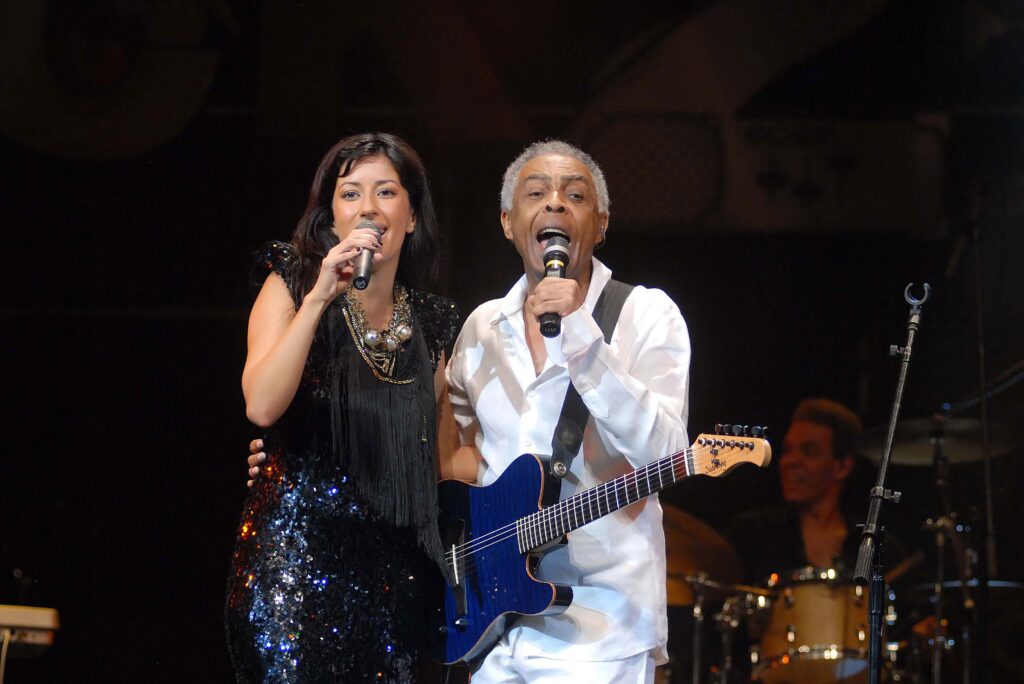
Life in London and Musical Evolution
In the late 1960s, Gilberto Gil, along with Caetano Veloso, was exiled from Brazil due to their political activism and artistic expressions. They both sought refuge in London, where they would immerse themselves in the city’s thriving music scene. This period of exile proved to be crucial in shaping the future direction of their musical career.
During his time in London, Gil had access to a diverse range of musical genres. He developed a particular interest in world music, reggae, and rock, which would later influence his own unique sound. Listening to artists like Bob Marley, The Beatles, and Jimi Hendrix expanded Gil’s musical horizons and helped him formulate new ideas.
In interviews, Gilberto Gil often reminisced about his encounters with acclaimed musicians of the time, such as Jorge Ben. These exchanges of ideas and experiences greatly contributed to the evolution of Gil’s music. As a result, his compositions started incorporating elements from various music styles like reggae, African rhythms, and rock.
While in London, Gil and Veloso’s active engagement with the local music scene played a key role in the development of their new musical style called Tropicalismo. This movement redefined Brazilian music by incorporating traditional cultural elements with international modern influences. In doing so, it embraced a pluralistic vision of music, which resonates to this day with its affirming understanding of the value of all the arts: popular and avant-garde, local and global.
Reconnecting with his cultural roots became increasingly essential for Gilberto Gil when he returned to Brazil in 1972. At this point, he entered a more spiritual and introspective phase, using music as an instrument to explore his inner self and reflect on philosophical and religious matters.
In conclusion, Gilberto Gil’s life in London, along with his openness to incorporate various influences into his music, has had a lasting impact on his artistic evolution. His works stand as a testament to the power of music to transcend boundaries and transform lives.
Return to Brazil and Continued Musical Innovations
After spending time in exile during the late 1960s and early 1970s, Gilberto Gil returned to Brazil and continued to make significant contributions to the world of Brazilian music. Drawing on a diverse range of musical influences and styles, he developed a distinctive sound that blended genres like Música Popular Brasileira (MPB), African music, soul, blues, folk, and more. His innovative approach to music led to the creation of a number of highly influential and memorable albums, showcasing both his versatility as an artist and his unwavering commitment to musical experimentation.
One of the key albums that marked his return to Brazil was Refazenda (1975), which showcased a strong connection to both Brazilian folk music and African rhythms. This album is a testament to the rich cultural experiences that informed Gil’s music, and it laid the groundwork for subsequent projects such as Refavela (1977), where he explored a fusion of reggae, afrobeat, and Brazilian styles. This project took inspiration from the Jamaican musical scene, as well as his journey to Lagos, Nigeria, solidifying his status as a leading figure in the world of global music.
Collaborations with other artists have also played a crucial role in shaping Gil’s music and expanding his reach. His landmark album with fellow Brazilian musician Jorge Ben, titled Gil E Jorge (1975), is a fine example of such partnership. This stripped-down, guitar-driven album provided a platform for the two musicians to express their creative interplay and prowess as both singers and instrumentalists.
In the years that followed, Gil continued to dabble in different musical genres and experiment in order to create a unique blend of sounds. The 90s saw a resurgence in international interest in his music, with the instrumental album O Sol de Oslo (1998) showcasing his abilities as a guitarist. In the 2000s, he continued to innovate and released the acclaimed live album Onda Azul (2002) which features a mix of traditional Brazilian music, jazz, and rock.
Throughout his illustrious career, Gilberto Gil has remained at the forefront of musical innovation and has continued to cultivate a sound that uniquely combines his Brazilian roots with a multitude of influences from around the world. His creative spirit, ability to seamlessly blend genres, and dedication to pushing the boundaries of what is possible in Brazilian music have solidified his status as one of the most important and cherished artists in the global music scene.
Political Career and Environmental Advocacy
Gilberto Gil has had a significant impact on Brazilian politics and environmental advocacy throughout his career. In 1987, he entered the political sphere by becoming a founding member of the Green Party(Partido Verde) in Brazil. The party focuses on promoting social justice and ecological sustainability as its core principles.
In 2003, Gil was appointed as Brazil’s Minister of Culture by then-president Luiz Inácio Lula da Silva. During his tenure, he implemented innovative cultural policies and expanded funding for the arts in Brazil. He held the position until 2008, when he decided to focus on his music career.
Environmental advocacy has been another important aspect of Gil’s work. He has consistently expressed his concerns about climate change and the need for sustainable development. In parallel to his political career, Gil founded the environmental protection organization Onda Azul (Blue Wave). This organization is dedicated to protecting Brazil’s waters and promoting awareness for environmental issues.
In addition to his political and environmental efforts, Gil has also been a vocal supporter of various social causes, leveraging his influence in the cultural sphere. For example, he collaborated with fellow Brazilian musician Luiz Gonzaga to create music focused on raising awareness about poverty and social inequality in Brazil’s Northeast region.
Gil’s career as a musician and a political activist demonstrates the power of art as a vehicle for social change. Whether through his contributions as a Minister of Culture or as an environmental advocate, Gilberto Gil has left an indelible mark on Brazilian society, using his unique blend of talents to promote cultural enrichment and sustainable development across the nation.
Discography and Recognition
Gilberto Gil, a prominent Brazilian musician, has made significant contributions to Brazilian pop music and the international music scene. Over the years, he has produced numerous albums, showcasing his multi-instrumentalist talents and his diverse songwriting abilities. Some notable albums in Gil’s discography include Gilberto Gil (1968), Expresso 2222, and Luar (A Gente Precisa Ver o Luar).
Gil’s innovative style, which often blends various music genres, has earned him a reputation for pushing the boundaries of popular music. As an originator of the Tropicália movement, also known as Tropicalismo, he has been influential in shaping the modern sound and direction of Brazilian pop music.
His impressive discography has not only garnered widespread recognition but also led to several prestigious awards throughout his career. Gilberto Gil’s dedication to the craft of music has been recognized by the Grammy Awards, where he has won two Best World Music Album awards for the albums “Quanta Live” (1998) and “Eletrácustico” (2004).
In addition to his Grammy wins, Gilberto Gil has also been honored with the Polar Music Prize in 2005. This esteemed award, presented by the Royal Swedish Academy of Music, is given to individuals, groups, or institutions for their exceptional achievements in the world of music. Gil’s contributions to popular music, both within Brazil and internationally, have made him a well-deserving recipient.
Although it is not possible to discuss all of his accomplishments in just a few paragraphs, it is evident that Gilberto Gil continues to leave a lasting impact on the international music scene through his updated recordings and artistic innovations. His extensive discography serves as a testament to his talent and dedication to the craft, and his numerous recognitions underscore the significance of his work in shaping the landscape of Brazilian pop music.
Legacy and Current Activities
Gilberto Gil is a Brazilian multi-instrumentalist, singer, and songwriter, who has been a prominent figure in Brazilian music for decades. With his eclectic mix of musical influences, including samba, reggae, and rock, Gil has been a driving force behind the Tropicália movement and an originator of the genre.
In addition to his musical career, Gil has been active in politics. As a member of the Brazilian Democratic Movement Party, he served as Brazil’s Minister of Culture from 2003 to 2008 under President Luiz Inácio Lula da Silva’s administration. His political activism and dedication to cultural preservation have earned him international recognition.
Gilberto Gil’s enthusiasm for innovation and freedom is also reflected in his support for Creative Commons, an organization devoted to enabling the sharing and use of creativity and knowledge through free legal tools. He has been a voice for the free exchange of ideas and artistic expression throughout his career.
In recent years, the Brazilian singer-songwriter has continued to produce and release new works. His 2010 album “Fé na Festa” embraced the traditional sounds of Brazilian forró music, while his 2014 album “Gilbertos Samba” paid homage to the legendary João Gilberto. His more recent albums, “OK OK OK” (2018) and “Gilberto Gil Summer” (2021), showcase his wide-ranging musical interests, from bossa nova to African-influenced sounds.
Furthermore, Gilberto Gil remains an ambassador of Brazilian and African culture, bridging the gap between different worldviews and promoting cross-cultural dialogue. His passion for Brazilian heritage and African roots is evident in his music and public appearances, as well as through his involvement in cultural organizations.
In summary, Gilberto Gil’s legacy as a musician, politician, and cultural icon leaves a lasting impact on both Brazilian and global culture. His ongoing dedication to creative expression, political activism, and cultural preservation demonstrates his unwavering commitment to a better future for Brazil and the world.

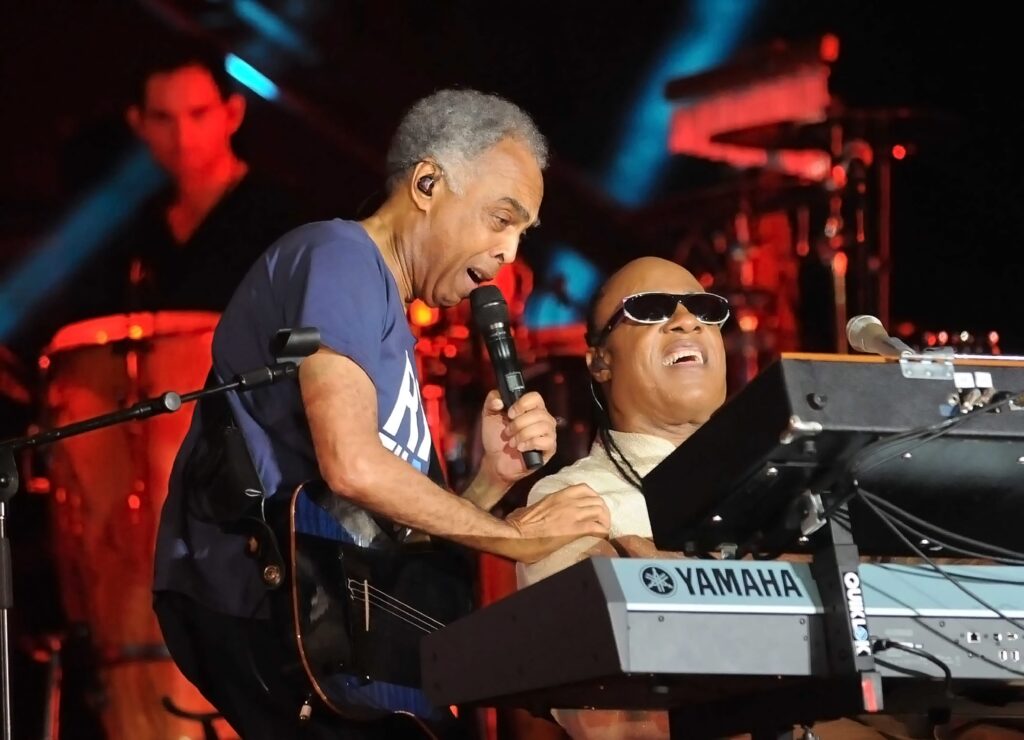


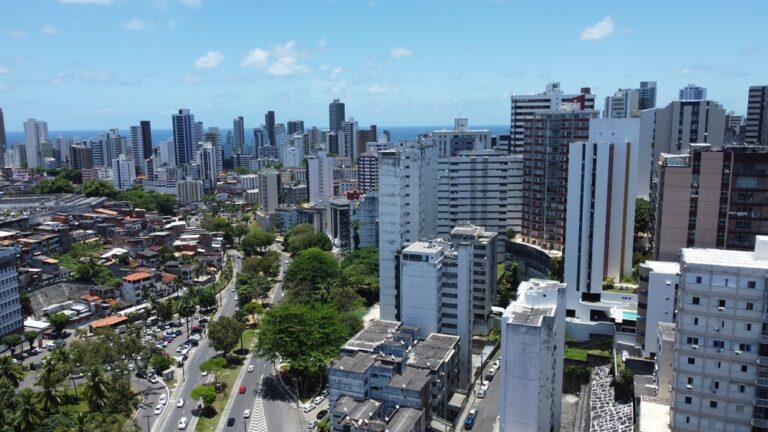
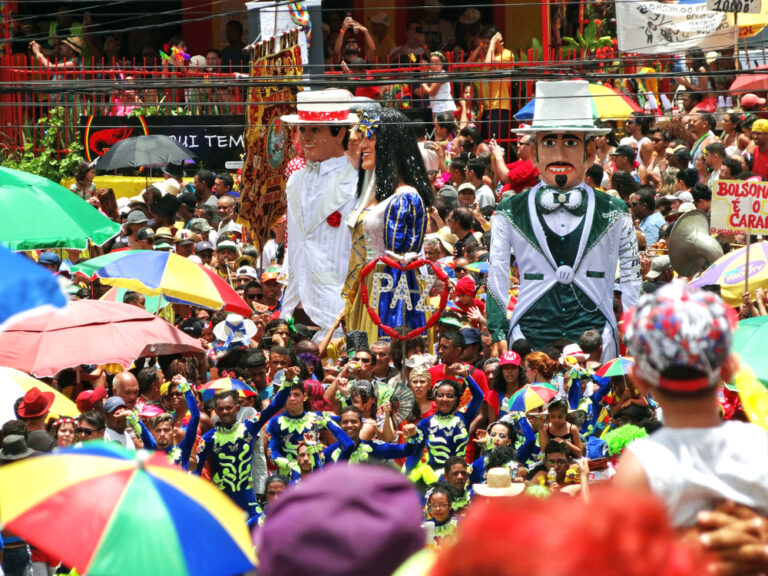



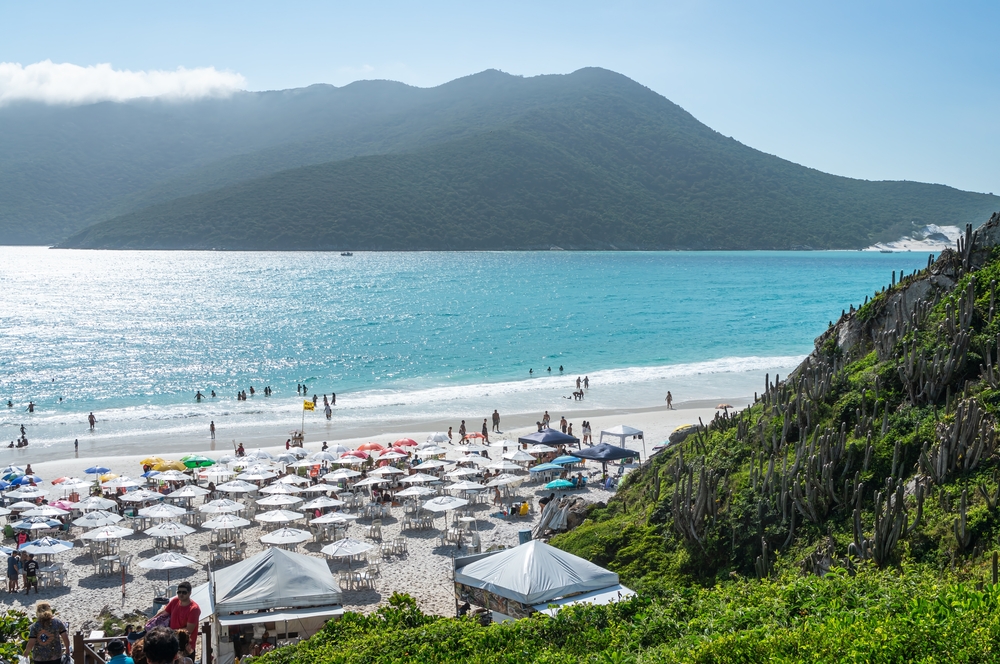

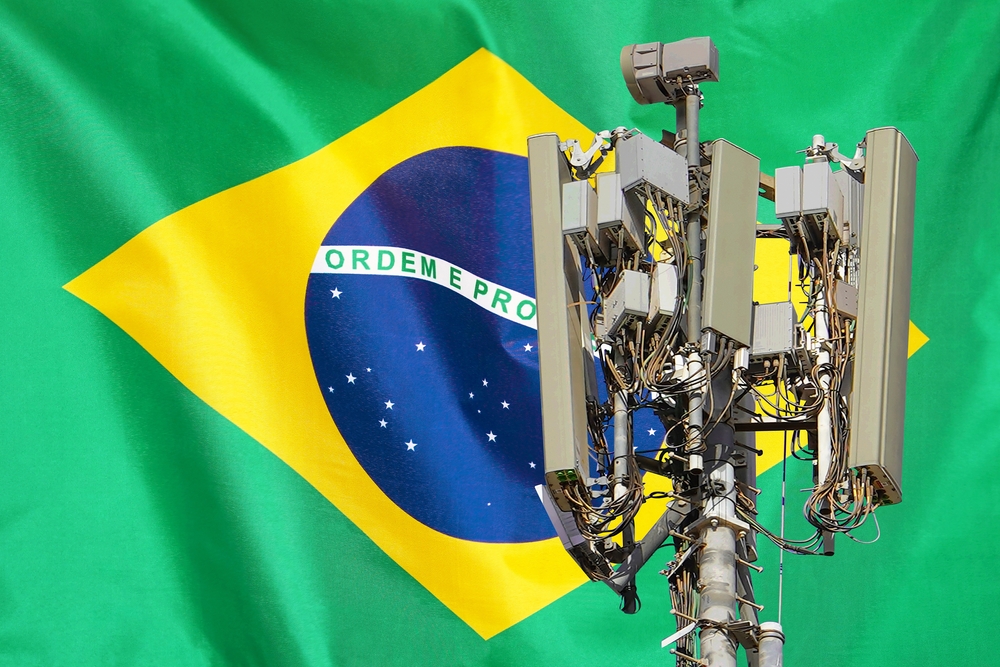
2 Responses